Schedule
| 10AM | Opening and Welcome Remarks
|
| 10:30AM | Panel I: Legal and Policy Landscape
Presents an overview of the legal and policy landscape informing loss and damage finance mechanism. This include what is already in place within the UN system for building out a loss and damage funding mechanism. How will a loss and damage mechanism get operationalized.
|
| 12PM | Lunch |
| 1PM | Panel II: Bridging the Science-Policy Divide
Presents the scientific basis for loss and damage. What is the latest science telling us and how serious is the problem. Based on current knowledge, will losses and damages get worse and how will this look for vulnerable countries and communities.
|
| 2:15PM |
Coffee Break |
| 2:30PM | Panel III: Living with Loss and Damage
Explores what’s at stake including what loss and damage may entail on the ground, and how can issues of justice and equity be incorporated in loss and damage funding moving forward.
|
| 4:00PM | Closing |
Speakers
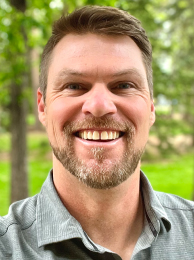 |
Joel CorreiaJoel Correia is a human-environment geographer who investigates how landscape change and natural resource governance shape societal inequalities manifest as climate and environmental injustice in Latin America. His research currently focuses on Indigenous land rights, legacies of settler colonialism, expanding agrarian frontiers, and relationships between biocultural diversity, climate change mitigation, and conservation in the Amazon and Gran Chaco forests. He is an assistant professor at Colorado State University in the Human Dimensions of Natural Resources Department where he co-directs the Just Social-Ecological Transitions in Latin America Program and is principal investigator for the Climate and Environmental Justice Futures Collaborative. His recent book Disrupting the Patrón: Indigenous land rights and the fight for environmental justice in Paraguay’s Chaco is available open access with the University of California Press. |
  |
Elizabeth EmmanuelElizabeth Emanuel is an international development expert with over twenty-five years of development experience working primarily with small island and coastal states. For the past 15 years she has been leading the Technical Assistance and Corporate Communications teams of CCRIF SPC. CCRIF is the world’s first multi-country, multi-peril risk pool based on parametric insurance. Through her work she engages with CCRIF member governments in the Caribbean and Central America to help them better understand disaster risk financing, risk layering and the role of parametric insurance in financially protecting their economies against natural disasters. She played a central role in developing CCRIF’s 40-hour disaster risk financing course which is now offered as a master’s level course at the University of the West Indies. She also works with local communities and civil society organizations across the Caribbean to develop and implement projects to build their resilience to climate change. |
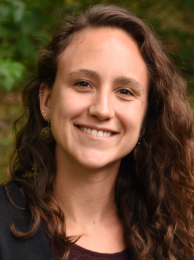  |
Danielle FalzonDanielle Falzon is an Assistant Professor of Sociology at Rutgers University, New Brunswick. She holds a Ph.D. in Sociology from Brown University. Her research examines power in climate change decision-making, in particular how inequalities are institutionalized into decision-making organizations. Her work is situated in two main sites: the UN climate negotiations and Bangladesh. In the climate negotiations she has analyzed how the institution privileges the typical traits of Global North countries over Global South countries, how Global North countries have obstructed progressive action on key issues including loss and damage, and how debates have evolved between countries around the Global Goal on Adaptation. Her work in Bangladesh examines how organizations produce adaptation interventions, and how their work ultimately prioritizes ideals for modernization over resilience to climate impacts. |
  |
Nathan JesseeNathan Jessee is an Environmental Fellow at Princeton University’s High Meadows Environmental Institute. They use community based participatory research and ethnography to study the social, cultural, and political dimensions of climate adaptation, environmental justice, and disaster and development-forced displacement in coastal Louisiana. Nathan’s work has appeared in the Journal of Political Ecology, Human Organization, and Practicing Anthropology and they are a co-author of the new book, People or Property: Legal Contradictions, Climate Resettlement, and the View from Shifting Ground, published by Palgrave Macmillan. |
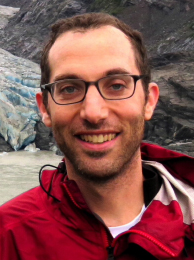  |
Robert KoppRobert Kopp is a climate scientist who serves at Rutgers University as a Distinguished Professor in the Department of Earth & Planetary Sciences. He directs the Megalopolitan Coastal Transformation Hub, a National Science Foundation-funded consortium that advances coastal climate adaptation and the scientific understanding of natural and human coastal climate dynamics. He is also a director of the Climate Impact Lab, a non-profit research organization supporting data-driven approaches to estimating the social and human costs of climate change. Professor Kopp’s research focuses on past and future sea-level change, the interactions between physical climate change and the economy, the use of climate risk information to inform decision-making, and the role of higher education in supporting societal climate risk management. He is also a lead author of the Intergovernmental Panel on Climate Change’s recent (2021) Sixth Assessment Report. Professor Kopp received his Ph.D. in Geobiology from the California Institute of Technology and his undergraduate degree in Geophysical Sciences from the University of Chicago. He is a fellow of the American Geophysical Union and the American Association for the Advancement of Science. |
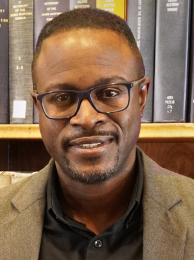  |
Kevon RhineyKevon Rhiney is the Barron Visiting Professor at Princeton University and associate professor at the department of Geography at Rutgers University. His current research investigates the development and justice implications of global environmental change in the Caribbean, particularly the ways socio-ecological shocks (ranging from climate extremes, market volatilities to novel crop diseases) are unevenly experienced and negotiated by historically marginalized communities. |
  |
Le-Anne RoperLe-Anne Roper is a Programme Management Officer with the United Nations Office for Disaster Risk Reduction (UNDRR), based in Bonn, Germany. In this capacity, she engages in global climate change processes, such as the formal convening of Parties to the climate change treaties for negotiations, meeting of constituted bodies with specific mandates, and responding to calls for submissions. She also contributes to and engages in the Comprehensive Risk Management (CRM) programme of the UNDRR that supports countries with integrated planning for disaster risk reduction and climate change adaptation. |
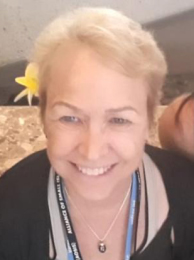  |
Linda SiegeleLinda Siegele JD LLM is an environmental lawyer based in the UK. She has been involved in the United Nations climate change negotiating process since 2005 with a special focus on the issues of adaptation and loss and damage associated with the adverse effects of climate change. Linda is particularly familiar with the climate change concerns of small island developing States and least developed countries, having directly supported country delegations through the provision of strategic legal and policy advice, including through membership on the Technical Expert Group for Comprehensive Risk Management (TEG-CRM) of the Executive Committee of the UNFCCC’s Warsaw International Mechanism. |
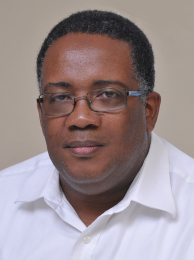  |
Michael TaylorMichael Taylor is a Professor of Climate Science and Dean of the Faculty of Science and Technology at the Mona campus of The University of the West Indies (UWI), Mona Campus. He is the co-director of the Climate Studies Group, Mona (CSGM) a research body which explores climate variability and change for the Caribbean region. He is well published and cited for his scientific work on the impact of climate change on the small islands of the Caribbean region. He is a Coordinating Lead Author on the Special Report on 1.5 Degrees of the Intergovernmental Panel on Climate Change (IPCC), a Silver Musgrave Awardee for Science (2013), and the 2019 ANSA Caribbean Laureate for Excellence in Science. He was recently appointed a Fellow of The World Academy of Sciences (TWAS). |




